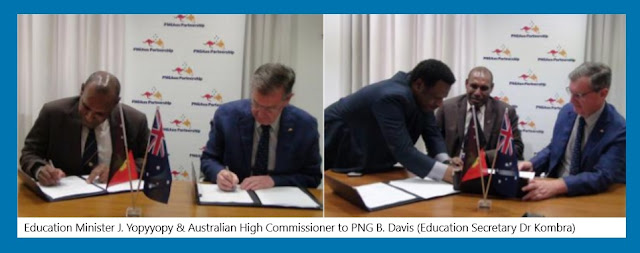Teachers play a vital role in shaping the future of any country. They are responsible for imparting knowledge and skills to students, which will help them become successful in their chosen careers. However, despite the importance of their role, many teachers in Papua New Guinea (PNG) are paid a low salary compared to their counterparts in other countries.
In this article, we will examine the salaries of PNG teachers and compare them with those of teachers in other countries. We will also explore what the PNG government can do to reward teachers properly.
How much an average high school teacher in PNG earns
According to the website payscale.com, the average high school teacher in PNG earns between K21,955 and K33,639 per year, depending on their experience and position.
This is a significantly lower salary compared to teachers in other countries. For instance, in New Zealand, the average salary for a high school teacher is $52,000 (K113,570), while in the United Kingdom, it is £28,000 (K120,900). In Canada, high school teachers earn an average salary of $61,700 (K158,421) per year.
- See the last pay increments for teachers here.
Factors impacting salaries of teachers in PNG
The low salaries of teachers in PNG can be attributed to various factors, including the country's economic situation and the government's budget allocation for education.
According to the World Bank, PNG has a Gross Domestic Product (GDP) per capita of $2,590 (K5,623) as of 2020. This is lower than the GDP per capita of other countries in the Pacific region, such as:
- Fiji ($5,791),
- Vanuatu ($3,478),
- New Caledonia ($43,129), and
- New Zealand ($43,547).
As a result, the government have limited resources to allocate to education, especially teachers' salaries, leading to low salaries for teachers.
PNG government's budget allocation for education
Furthermore, the PNG government's budget allocation for education is relatively low compared to other countries in the region. (Note that this looks at the main education budget, excluding the Tuition Fee Free Education Funds)
According to the United Nations Educational, Scientific and Cultural Organization (UNESCO), in 2019, the government allocated 3.1% of its GDP to education. This is lower than the allocation of other Pacific Island countries, such as
- Solomon Islands (6.7%),
- Fiji (5.2%), Vanuatu (4.9%), and
- New Zealand (6.0%).
A higher allocation of the budget to education could result in better salaries for teachers, among other improvements.
What can the PNG government do?
To reward teachers properly, the PNG government can take various steps, including:
- increasing the budget allocation for education,
- providing incentives for teachers, and
- improving the quality of education.
A higher budget allocation for education could result in increased salaries for teachers, which can attract and retain qualified teachers in the profession.
Providing incentives, such as performance-based pay, can motivate teachers to perform better, resulting in better learning outcomes for students.
Improving the quality of education can also lead to better salaries for teachers. When students perform better in national and international assessments, it reflects positively on the quality of education provided by the country.
The government can improve the quality of education by investing in teacher training, providing resources for schools, and improving the curriculum.
PNG Teachers' Pay Compared to Pacific Island Countries
The salaries of teachers in PNG are lower compared to those in other countries, and this can be attributed to various factors, including the country's economic situation and the government's budget allocation for education.
To reward teachers properly, the government can attract and retain qualified teachers in the profession, resulting in better learning outcomes for students and a brighter future for the country.
In summary, it is clear that the salaries of teachers in Papua New Guinea are comparatively low when compared to those in other Pacific Island countries, such as New Zealand, Australia, Fiji, Vanuatu, and Solomon Islands.
However, the government can take steps to reward teachers properly, including increasing the budget allocation for education, providing incentives for teachers, and improving the quality of education.
It is essential for the government to recognize the important role that teachers play in shaping the future of the country and to ensure that they are adequately compensated for their work.
Sources:
https://www.payscale.com/research/PG/Job=High_School_Teacher/Salary
https://www.education.gov.pg/
https://data.worldbank.org/indicator/NY.GDP.PCAP.CD?locations=PG-FJ-NC-NZ-SB-VU
https://data.worldbank.org/indicator/SE.XPD.TOTL.GD.ZS?locations=PG-FJ-NC-NZ-SB-VU
https://www.unesco.org/education/indices/education-at-a-glance/report-2019/developing-regions/pacific
https://www.worldbank.org/en/country/papuanewguinea/publication/pacific-human-capital-development-a-study-of-skills-shortages-in-the-region
https://www.asiapacific.ca/statistics/data-brief/gdp-capita-current-usd-2018
https://www.teachnz.govt.nz/getting-started/before-you-apply/what-youll-earn/
https://www.payscale.com/research/CA/Job=High_School_Teacher/Salary
https://www.payscale.com/research/UK/Job=High_School_Teacher/Salary











